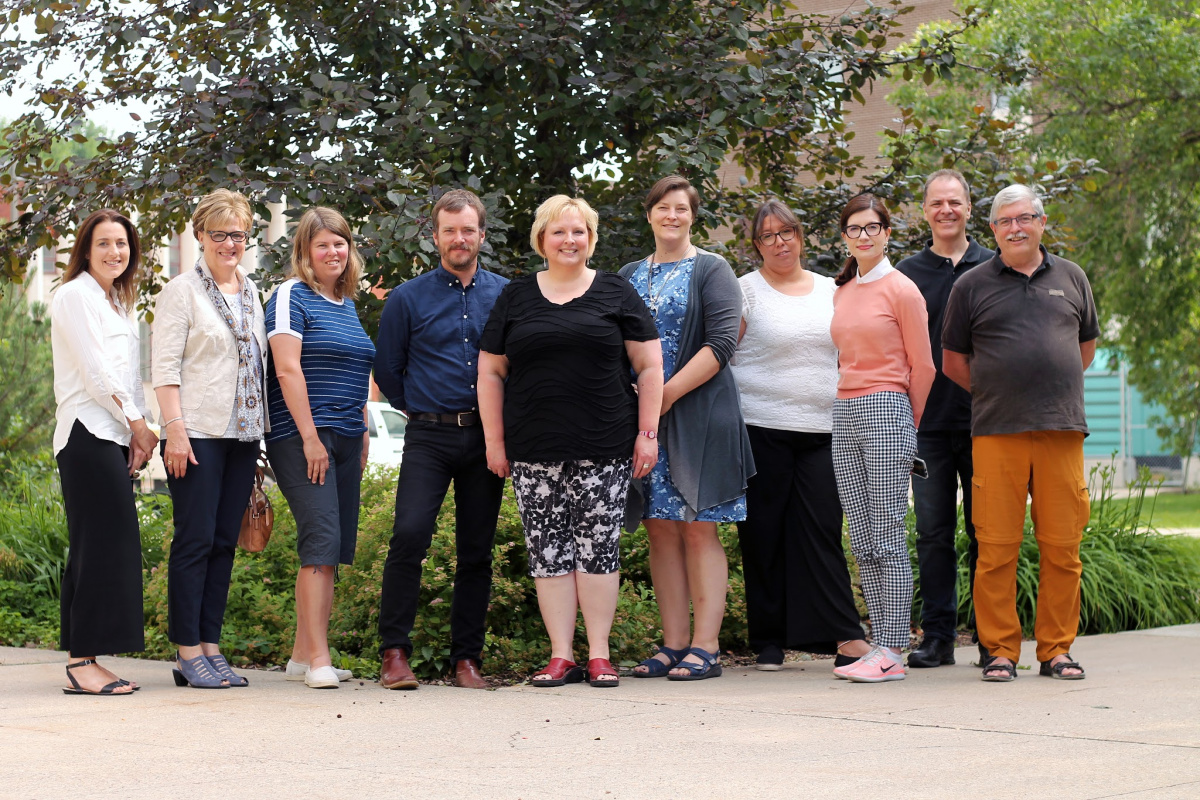Politicians and pundits have long contended that a populace with a good grounding in the study of history are bound to be more engaged citizens. But is there really a connection between the study of history and civic engagement? And how do educators and other purveyors of historical information best teach history in order to create an engaged citizenry?
Elementary education professor Carla Peck hopes to provide answers to those questions and many others with a seven-year project involving 27 co-researchers that will take a look at how history is currently taught in K-12 classrooms across the country, how educators are prepared to teach history, which resources they use and how they use them to teach history, how Indigenous knowledge is incorporated into history education, and much more.
“There hasn’t been a national study of history education in Canada for more than 50 years,” Peck said. “There have been so many developments in history curricula, in research on how to teach history, and in societal perspectives on the role of history in shaping identity. So it’s time.”
The project just received a $2.5 million Partnership Grant from the Social Sciences and Humanities Research Council of Canada (SSHRC) to investigate the potential for history to help students engage with key challenges facing Canadian society today and in the future. Additional funding from partners, comprising 17 universities and 31 educational and history organizations, brings the project budget to more than $8.6 million over seven years.
Teaching the tools of the historian
Peck, who has been involved in laying the groundwork for this project for more than a decade, says there’s been a shift away from didactic, textbook-based rote learning about history toward giving students the critical tools historians use to analyze evidence and sources, and consider how historical narratives are constructed—tools that have uses beyond studying history.
“We think if you teach your students how to think critically about the past, those skills are absolutely transferable to thinking critically about the present and the future,” Peck said.
“We’ve had all these debates come up lately about renaming schools and buildings, about taking monuments down or keeping them up or changing them to reflect another understanding of a given historical figure or event. In order to have really thoughtful, informed debates, we need to help students learn how to use those critical skills.”
Peck said the project will look at successful pedagogical strategies already in use in various educational contexts across Canada, as well as considering how technology can be used to support innovative teaching. She added that the ways students’ historical knowledge is assessed are due for examination, which may help establish a connection between historical thinking and civic engagement.
“We hear all the time from interested parties, if only we teach more history, we’ll have great citizens. There is very little empirical evidence to show that’s the case,” Peck said.
“It makes good common sense that if we teach students skills of the historian to engage critically and analytically with evidence, that will help them do similar work in the present and future. But part of our task is to figure out how we test that assumption.”
‘The stories we tell about ourselves matter”
Peck says that since the project was announced, educators from across Canada have reached out to show their support and ask how they can contribute. It’s an acknowledgement, she says, that the way we think about history is important not just in understanding the past but in envisioning the future of the country.
“The stories we tell about ourselves matter. The stories we tell about our communities and our nations matter. But part of my goal is helping teachers and students understand that when we tell certain stories, we’re excluding other stories,” Peck said. “That’s what historical narratives do. You can’t talk about everything. You focus on a particular aspect, but that means other things get excluded. I want students to know they shouldn’t just read the textbook and say, ‘Now I know.’ It’s far more complex than that.”
Photo: The “Thinking Historically” executive committee (from left): Kristina Llewellyn (UWaterloo), Penney Clark (UBC), Catherine Duquette (UQAC), Lindsay Gibson, (UBC), Carla Peck (UAlberta), Rachel Collishaw (Ontario History and Social Sciences Teachers Association), Blaire Gould (Mi’kmaw Kina’matnewey), Jacqueline Leighton (UAlberta), John Tidswell, (ATA-SSC), Alan Sears (UNB). (Photo: Kateryna Barnes)
Not pictured: Maxime Dagenais (McMaster) and Marie Battiste (USask).
